If you are pregnant and curious about what you can and cannot drink, then you are in the right place!
In this blog post, I share a comprehensive overview of the current guidelines related to beverages suitable for pregnancy, offer my experience in navigating beverage choices when expecting and feature 23 energizing beverages developed by my dietitian colleagues.
This article is not for medical advice and is for informational and educational purposes only. Contact your provider for individualized advice.
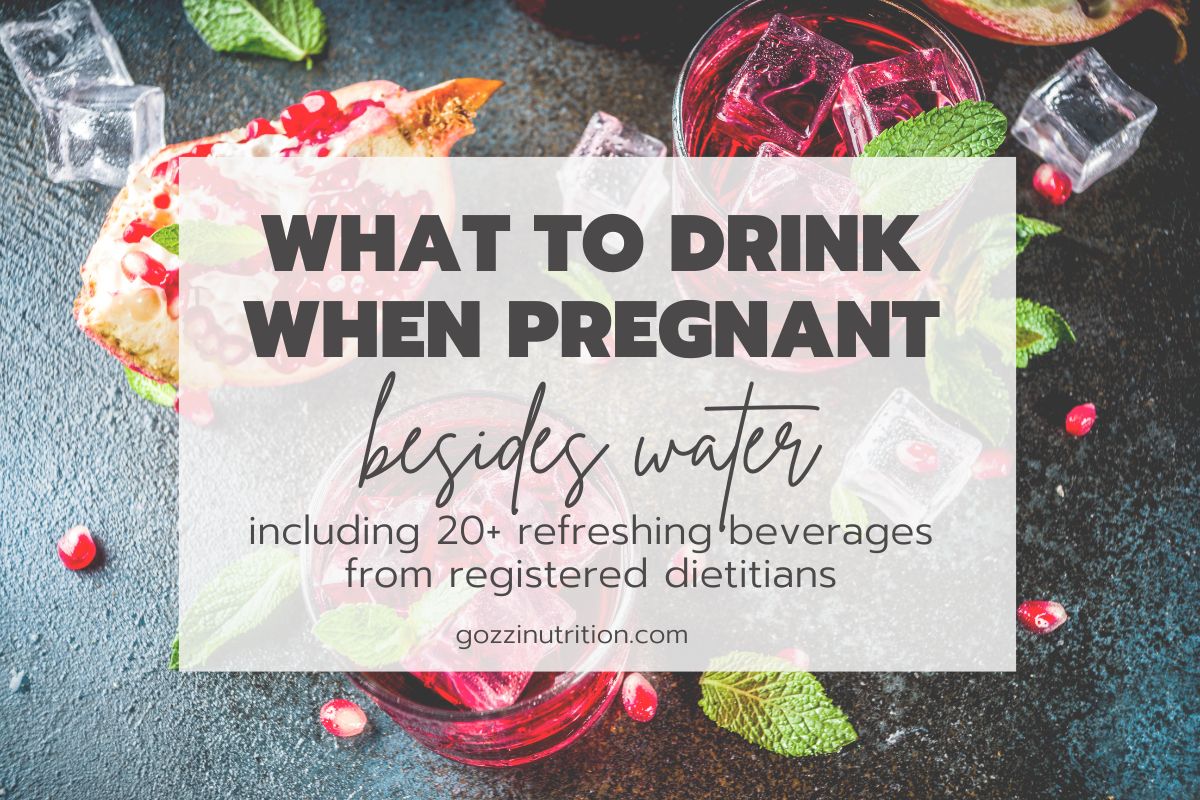
Interested in nutrition counseling? Learn more here and grab your free copy of the Plant Forward Meal Prep Made Easy Guide.
Table of Contents
Why does it matter what we drink when pregnant?
Our beverage choices during pregnancy matter because:
- Ingredients matter. Substances in certain beverages, like alcohol, caffeine and added supplements, can not only negatively affect your baby’s growth but can also raise your blood pressure.
- Hydration is key. Proper hydration during pregnancy supports overall physiological function, enhances bowel regularity, helps prevent muscle cramping, and supports healthy levels of amniotic fluid.
- Drinking is social. While pregnancy is a joyful time for many, it can also feel like things you normally do are taken away from you overnight, and engaging in celebratory beverages–alcohol or otherwise–is just another thing “taken away.”
How much liquid should I drink when pregnant?
Pregnant people should consume at least 64-96 ounces of water per day. My midwife encouraged me to drink 100 ounces of water per day.
All of this water does not have to come from just drinking plain water, but the majority should come from unsweetened and non caffeinated beverages.
What drinks may help ease morning sickness?
If you are suffering from morning sickness, I feel for you. I share my journey with first trimester nausea, and what helped me feel better, in my article “Digestive Issues During Pregnancy.”
Sometimes it can be hard to even keep liquid down. Here are some beverages that are commonly considered during pregnancy nausea and vomiting.
Lemonade or water with lemon.
I drank a lot of lemonade when I was pregnant because I was craving a tart, fresh flavor–especially in the first trimester. We always had lemons on hand for me to squeeze into my water bottle, too.
There is not really any research to support the anecdotal experience that lemon juice can decrease feelings of morning sickness, but there is some research to suggest that inhaling lemon essential oil can reduce feelings of nausea in pregnant people. That would explain why I would often sniff lemons!
Ginger ale and ginger tea
Ginger ale, usually diluted with some water and a spritz of lemon, was another go-to first trimester beverage. Ginger ale would just go down easier than water in those nauseous moments.
While you may find some relief with grocery-store ginger ale, ginger is most effective at reducing nausea in pregnancy when used in a more potent form like fresh ginger root, ginger capsules or ginger extract. As always, check with your doctor before consuming any supplements.
Mint tea
Although peppermint tea is considered safe to consume in moderation during pregnancy, we have very little scholarly evidence on the effectiveness of mint (and other herbs) in suppressing nausea and vomiting associated with morning sickness.
Anecdotally, however, peppermint tea is commonly used to soothe indigestion during pregnancy. It is also caffeine free.
I don’t enjoy peppermint tea but I did find sniffing peppermints and sucking on peppermint candies to be soothing during this time.
Looking for more beverages ideas to ease the nausea and vomiting associated with morning sickness? Check out the Smoothies for Pregnancy Nausea Guide from Well Nourished Mama.
What beverages may help soothe pregnancy heartburn?
Unfortunately, the soothing possibilities of lemon, ginger, and peppermint may come to a grinding halt when pregnancy heartburn starts.
Although everyone reacts differently to heartburn, acidic foods like lemon, ginger, peppermint, coffee and acidic fruit juices may exacerbate heartburn. On the other hand, ginger and mint may help aid in digestion –so it’s really individualized!
Drinking milk, especially low fat or nonfat milk may help soothe heartburn. But in some people milk makes heartburn worse. There really is not any definitive research indicating that milk is a “cure” for reflux, but anecdotally many people find that it helps.
What to drink when pregnant (besides water)
So now that we’ve dealt with the common ailments of pregnancy and what to drink to soothe morning sickness and pregnancy heart burn, let’s talk about what to drink when pregnant to stay hydrated.
Drinking water when pregnant
I know I said this article is about what to drink when pregnant other than water, but staying hydrated is super important while pregnant. So we have to at least touch on water!
Here are some tips when you get tired of drinking plain water:
- Try infusing your water with citrus, herbs, fruit like berries or watermelon and even adding cucumber slices to your water.
- Switch to sparkling water. If you don’t have pregnancy heartburn, unsweetened sparkling water is a great choice.
- Include high-water content fruits and vegetables into your diet. Watermelon, cantaloupe, pineapple, cucumber and tomato are all great options.
- Broth-based soups are a fun way to hydrate your body and are a great idea if you are having trouble keeping solid food down.
- Smoothies are a great idea during pregnancy because they offer hydration and, depending on how you make them, can offer additional nutrients and energy. Check out this guide for the Best Smoothies for Pregnancy from Bucket List Tummy.
Drinking juice when pregnant
Juice is a refreshing choice when considering what to drink while pregnant other than water. Cranberry juice, pineapple juice, apple juice, pomegranate juice, orange juice and even vegetable juice are all popular options for extra energy and hydration.
Tips for selecting the best juice while pregnant:
- Consider added sugar. Some juices contain added sugar. Ideally, added sugars should be limited to 100 grams per day. Try 100% juice or dilute juice with water if you are concerned about your sugar intake.
- Look for fortified juices. Fortification is the process by which nutrients (usually vitamins and minerals) are added into a food or beverage to enhance nutrition. Orange juice with added calcium and vitamin D is a great example of this.
- Drink pasteurized juices. It is best to avoid all unpasteurized juice or any freshly squeezed juices that have been unrefrigerated or juiced for longer than 2 hours before drinking.
Drinking milk when pregnant
Drinkable dairy products, like milk and yogurt, are great options for what to drink when pregnant other than water.
Dairy milk is a nutrient-rich beverage offering vitamin D and calcium, key nutrients during pregnancy. Plant based milks like soy, almond and oat are good choices while pregnant as long as they are fortified with key nutrients like vitamin D and calcium.
When selecting a dairy beverage while pregnant, keep the following in mind:
- Pasteurization: it is best to avoid raw dairy milk when pregnant. It is also important to ensure that the plant-based milks you consume are pasteurized –no homemade nut milks while pregnant.
- Check for added nutrients: check for vitamin D (most milk is fortified with vitamin D), vitamin A and omega-3 fatty acids.

What drinks to avoid or limit while pregnant
Caffeinated should be limited during pregnancy. Fermented beverages are best to either limit or avoid entirely. Alcoholic beverages should be limited.
Drinking caffeinated beverages while pregnant
Caffeine is found in a wide variety of beverages either naturally or as an added ingredient. Examples include:
- Brewed Coffee
- Espresso shots and espresso based drinks like lattes, cappuccinos and macchiatos
- Black teas including chai
- Green teas including matcha
- White tea
- Red tea
- Guarana
- Yerba Mate
- Chocolate
- Energy drinks
- Soda including diet soda
The recommendation is to limit caffeine intake to no more than 200 mg per day while pregnant. That is about 12 ounces of coffee per day.
However, it can be hard to know how much caffeine you are consuming. If caffeine has been added to a product, like soda, then it will be listed in the ingredient list. The FDA does not require manufacturers to disclose how much caffeine is in the product.
It is also important to consider that caffeinated beverages are a diuretic which works against your hydration goals if consumed in excess. So while none of the above beverages are necessarily “off-limits” during pregnancy, just keep in mind their caffeine content in relation to your other beverages for the day.
If you are accustomed to drinking a variety of caffeinated beverages like coffee, espresso, tea, matcha and soda, you may have to consider alternatives like:
- Caffeine free sodas like ginger ale
- Herbal teas and lower-caffeine teas like some green teas
- Half-caff and decaffeinated coffee and espresso
Is kombucha safe for pregnancy?
Kombucha is a fermented beverage made from tea. It contains small amounts of caffeine and alcohol. It may or may not be pasteurized depending on the source.
It is often marketed as a probiotic and “gut-health” friendly beverage, although there is very little research to demonstrate kombucha’s role in human health.
Considering the caffeine, alcohol and food safety concerns around pasteurization, kombucha is not recommended to drink when pregnant.
Drinking energy drinks when pregnant
An energy drink is a beverage that contains caffeine, sweeteners and stimulants or supplements. The formulation varies by brand. In general, it is best to avoid these beverages while pregnant.
Drinking electrolyte drinks when pregnant
Electrolyte beverages are different from energy drinks. Electrolyte drinks are marketed as replacing the electrolytes lost in sweat, like sodium, potassium and magnesium. They also typically contain a quick-digesting carbohydrate like dextrose.
Electrolyte drinks could be a useful tool in meeting hydration needs during pregnancy if you are regularly losing fluid through sweat or vomiting.
It is important to read the nutrition label and speak with your doctor and registered dietitian about electrolyte beverages while pregnant.
Are “non-alcoholic” and “alcohol-free” beverages safe for pregnancy?
There is an emerging market of “low-alcohol”, “non-alcoholic” and “zero-proof” wines, beers and spirits.
These beverages may seem like a great option of what to drink when pregnant on the surface but are they really suitable for pregnancy when alcohol is 100% off-limits?
It is a bit of a gray area.
The FDA allows manufacturers to call a product “non-alcoholic” with amounts of alcohol up to 0.5% per volume. The term “alcohol-free” means that the product does not have any discernible levels of alcohol.
It’s also important to note that these beverages may be fermented and contain bacteria. It is best to work with a registered dietitian to determine if non-alcoholic beer, wine or spirits are appropriate during your pregnancy.
What to Drink When Pregnant: Beverage Recipes from Registered Dietitians
Check out these refreshing beverages, created by registered dietitians, that will help you stay hydrated during pregnancy and beyond!
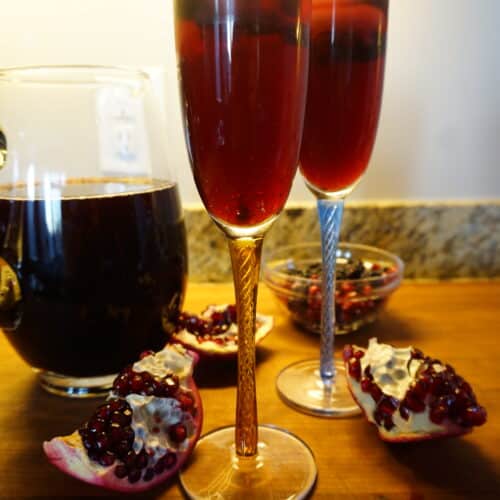
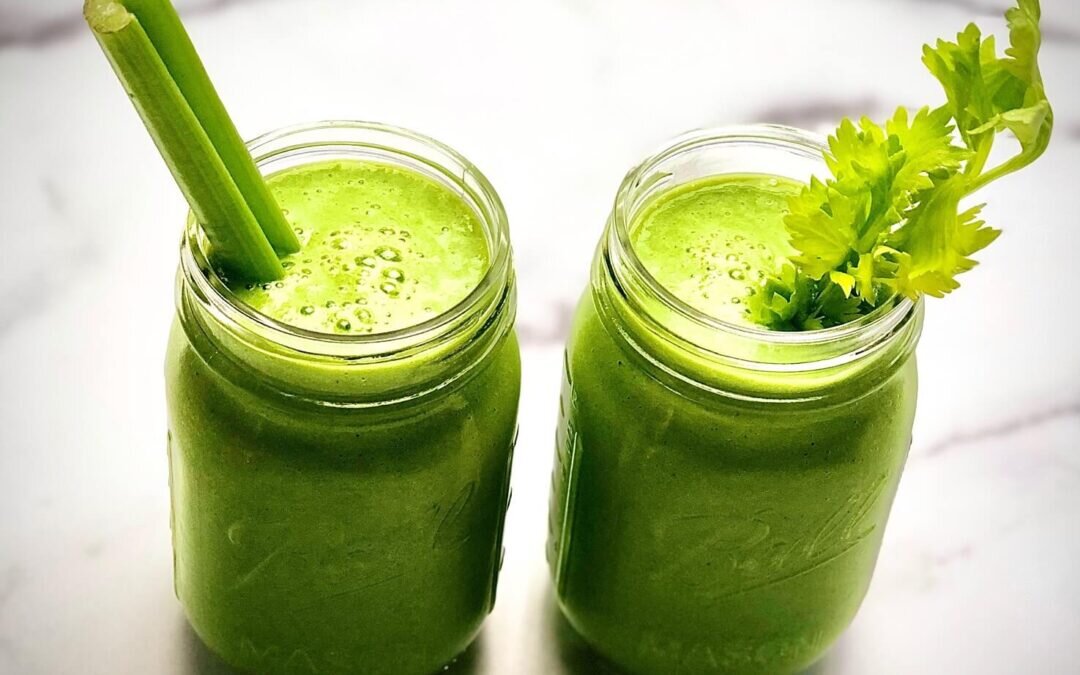
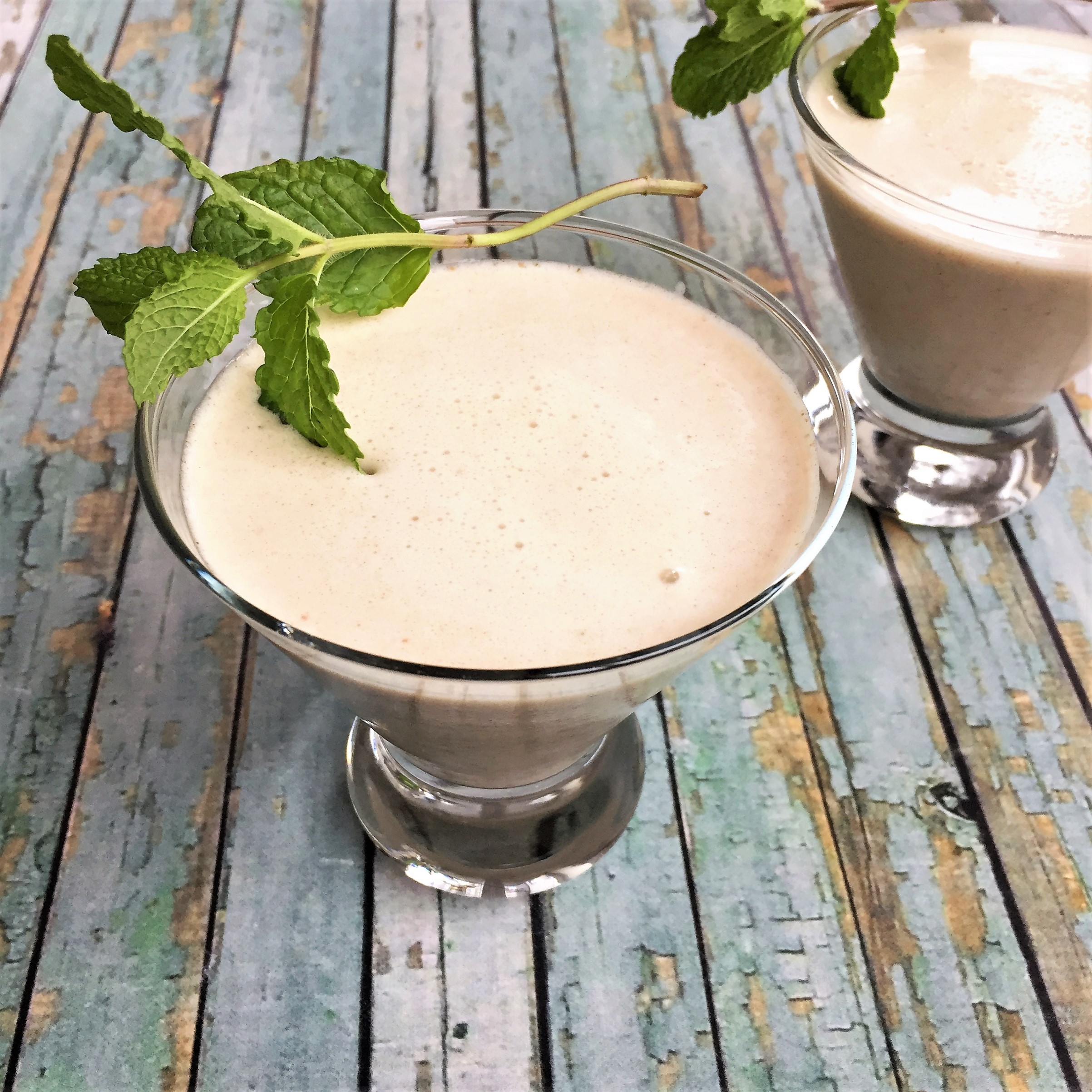
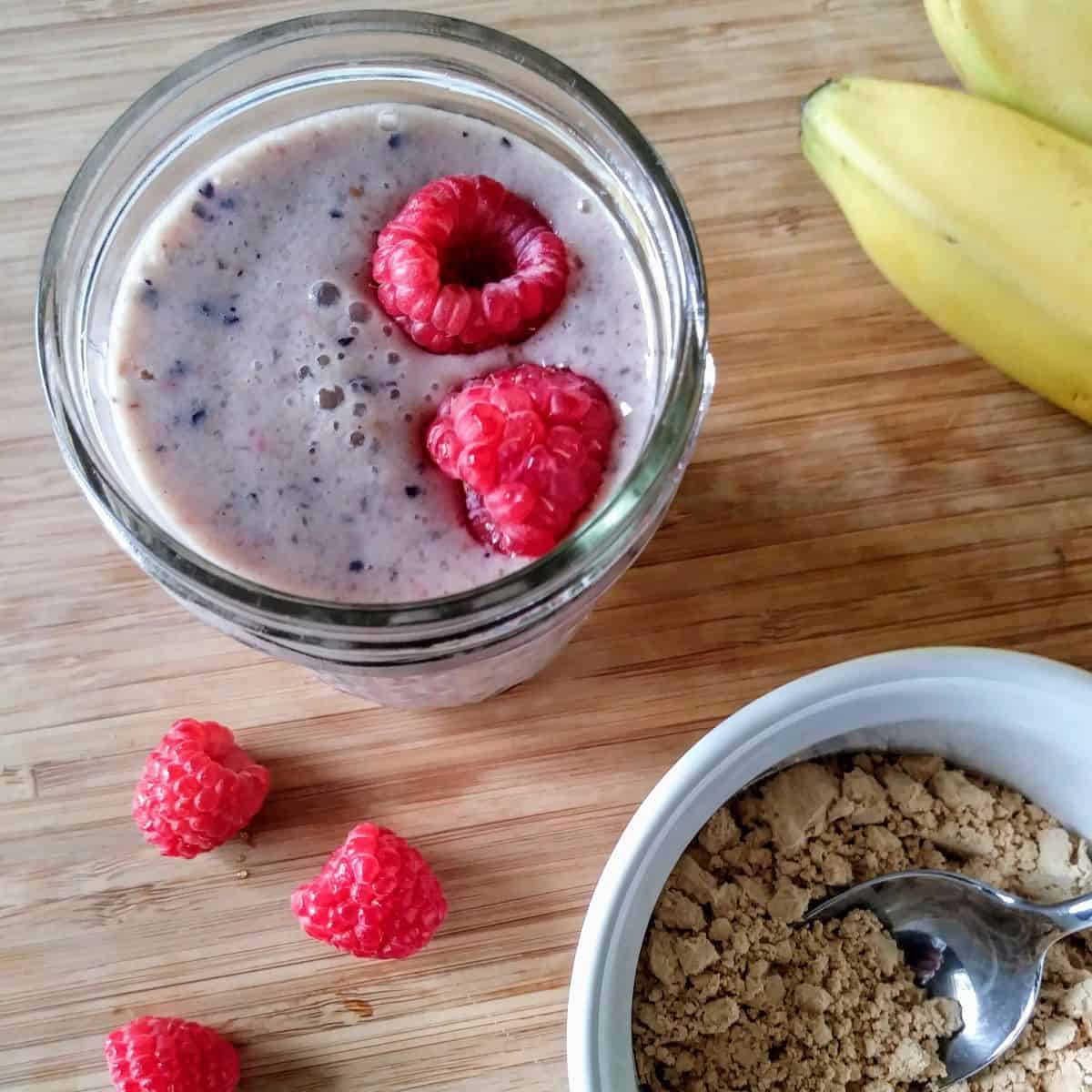


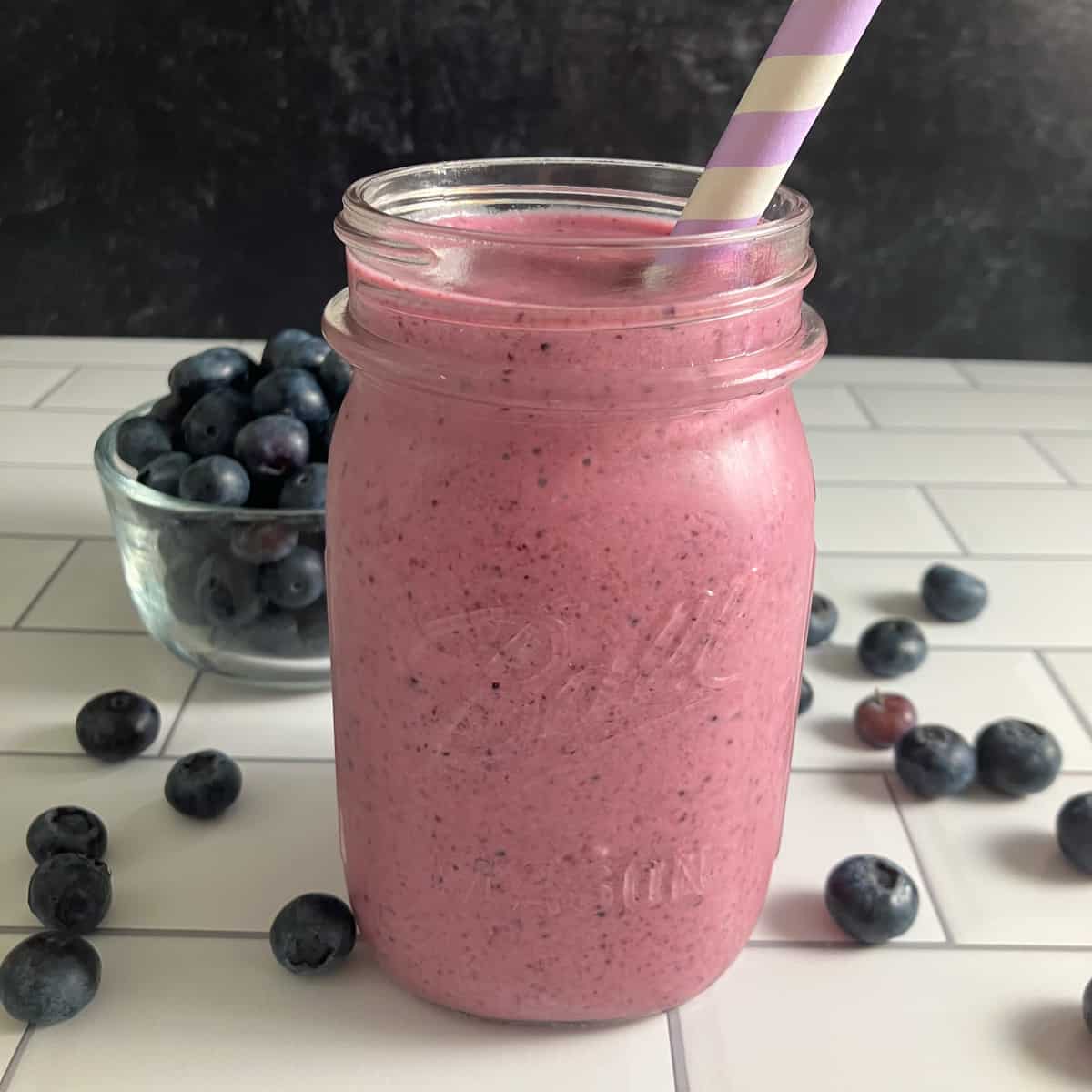

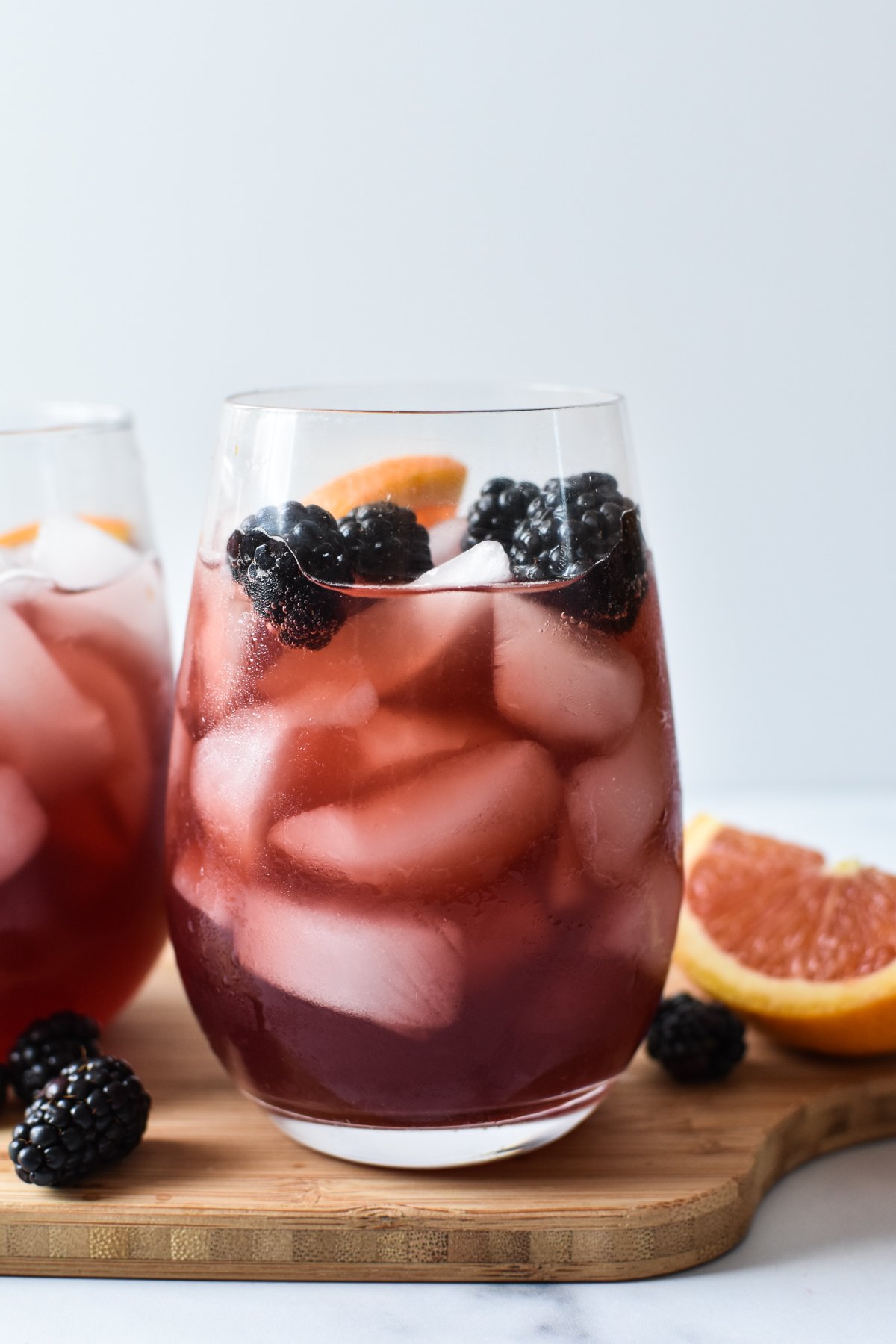


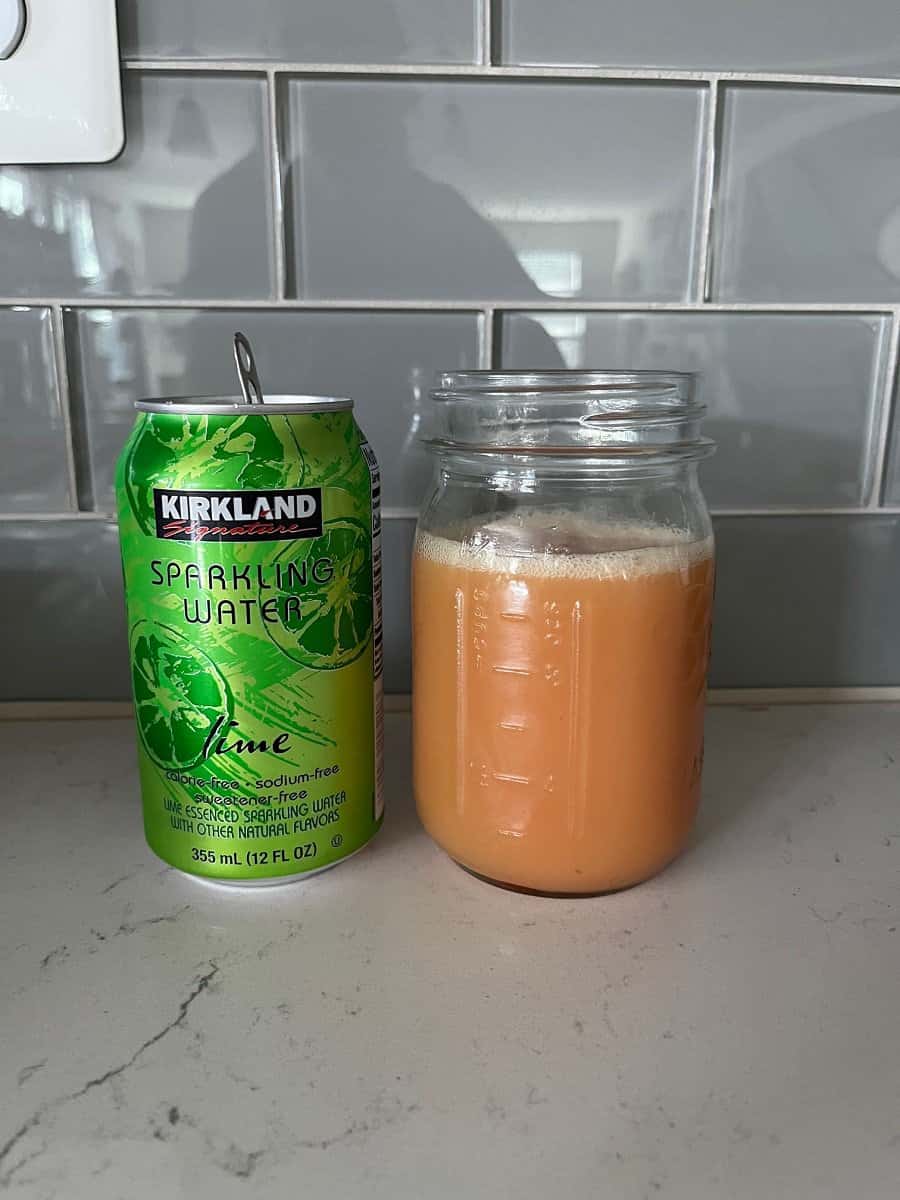
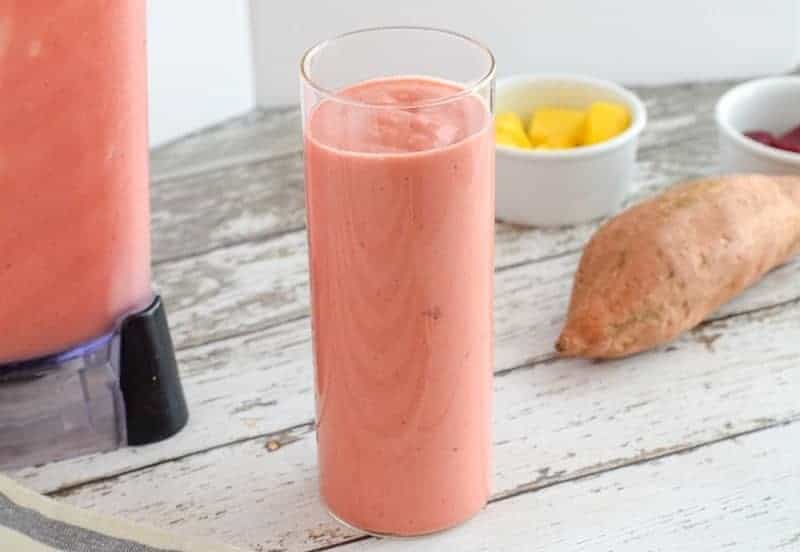
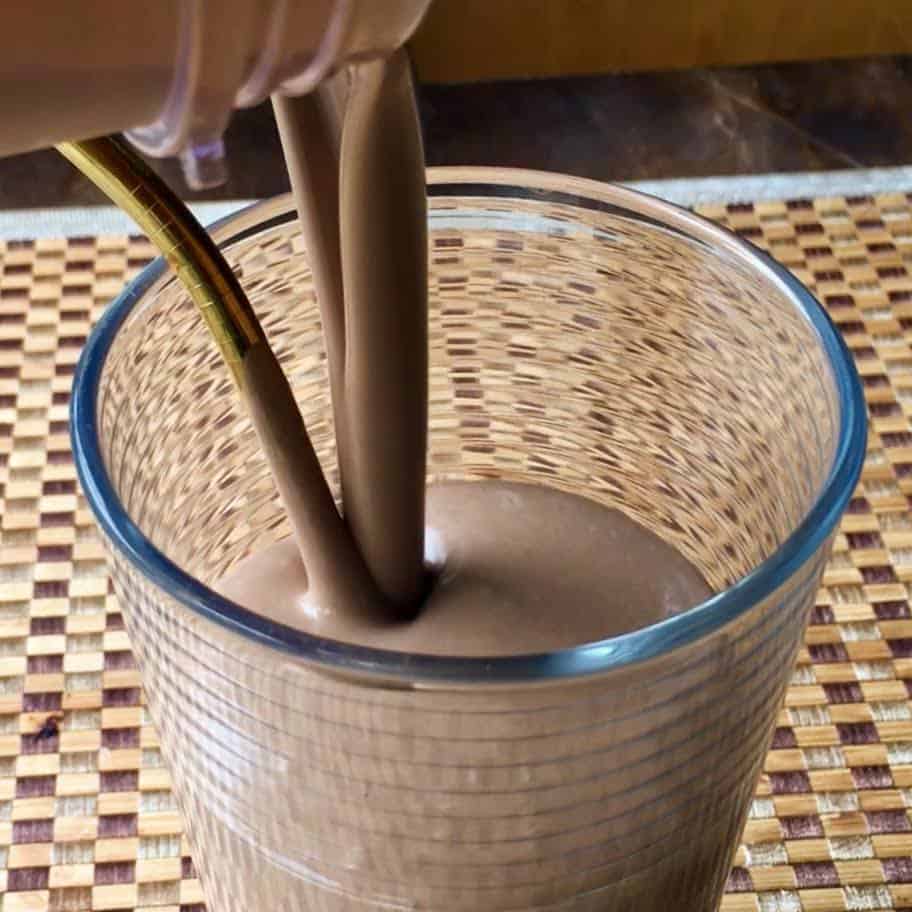

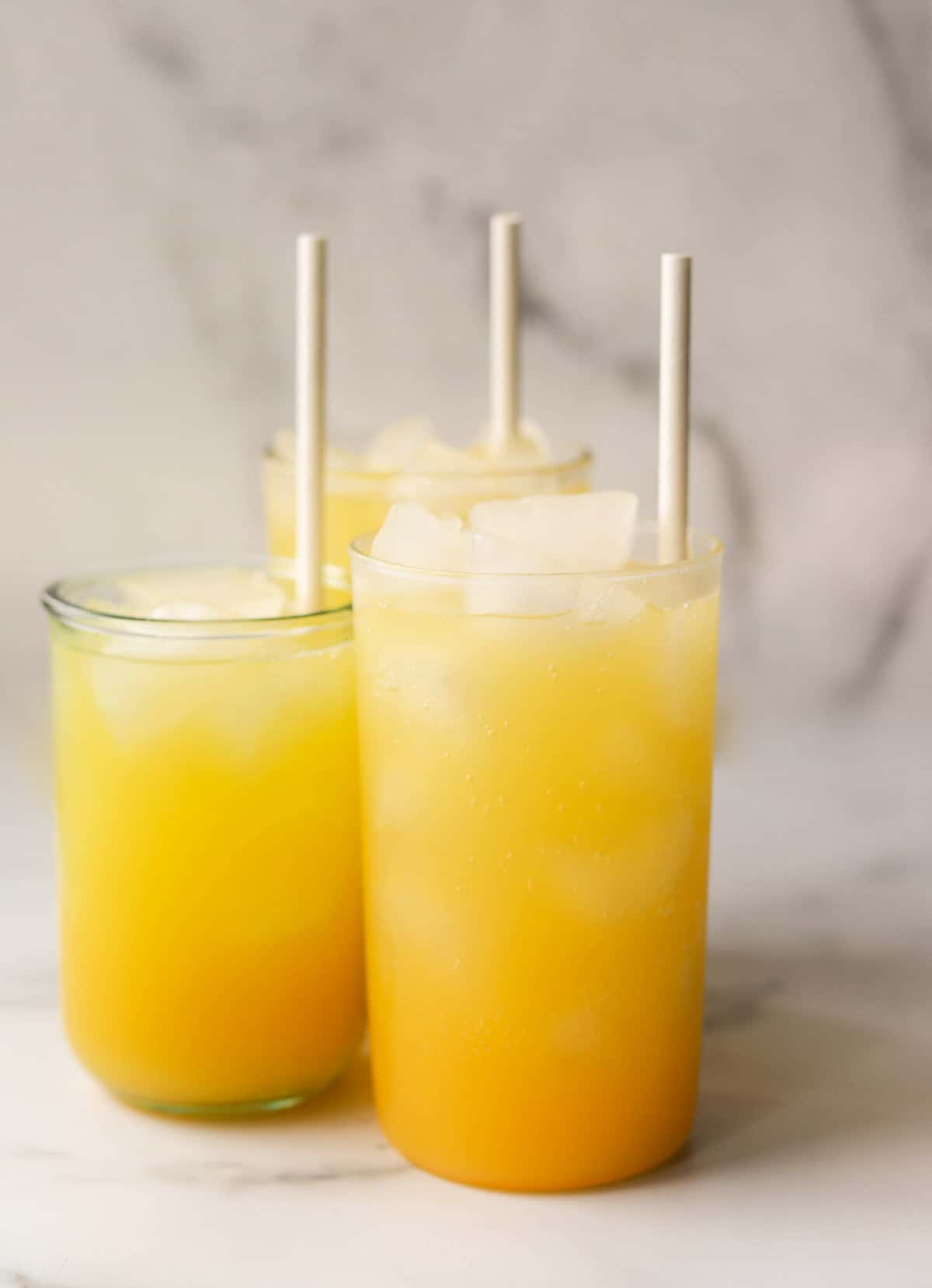
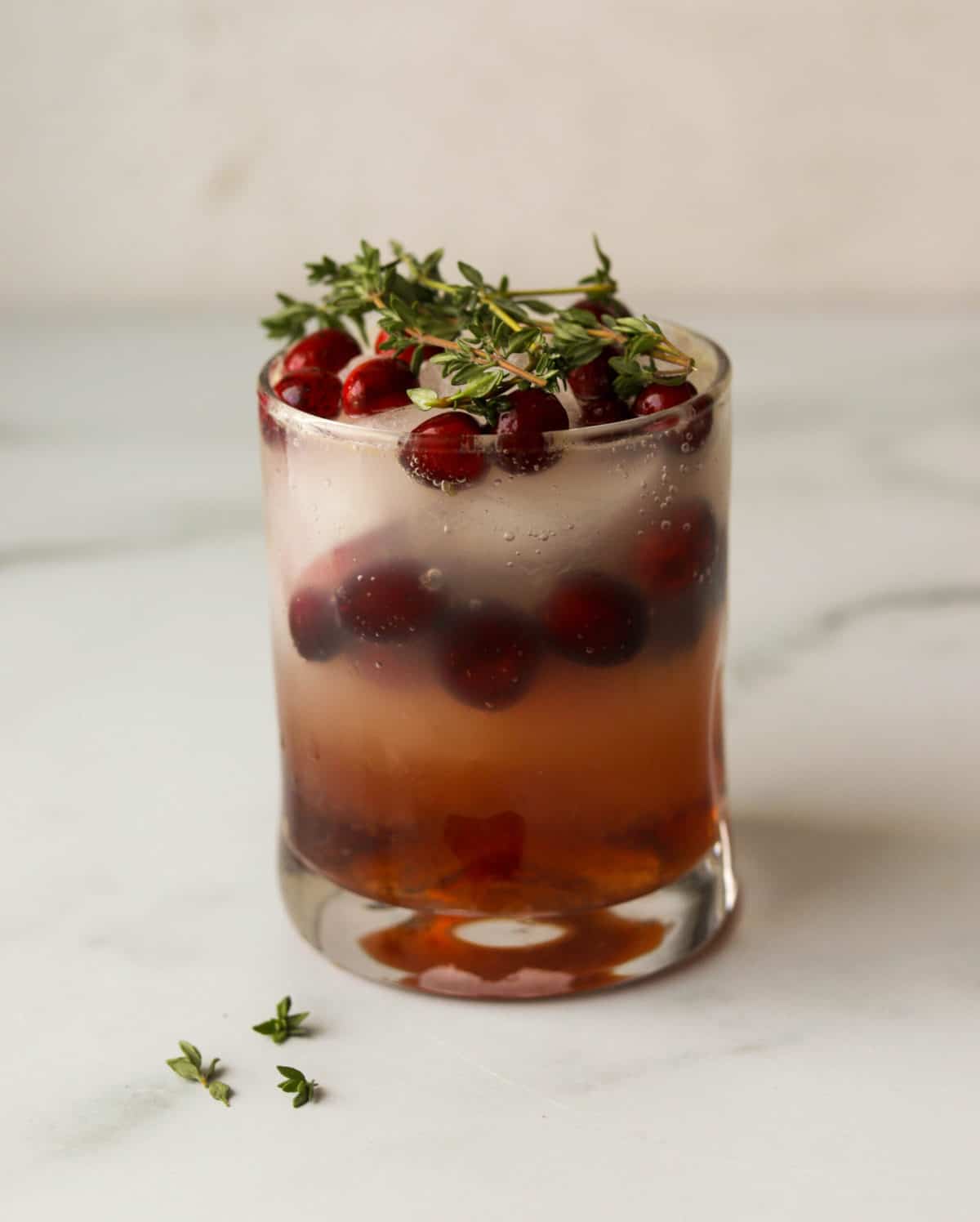
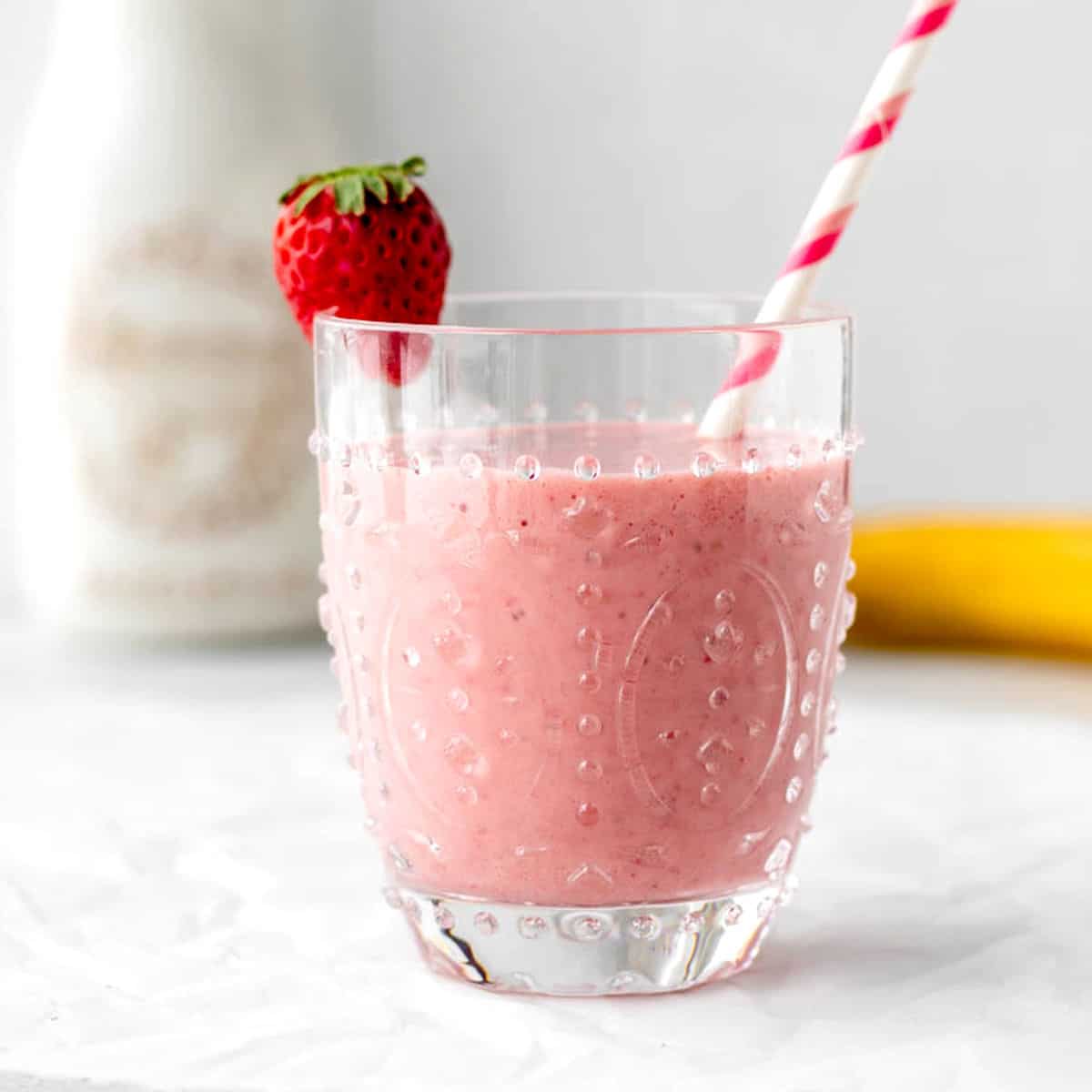
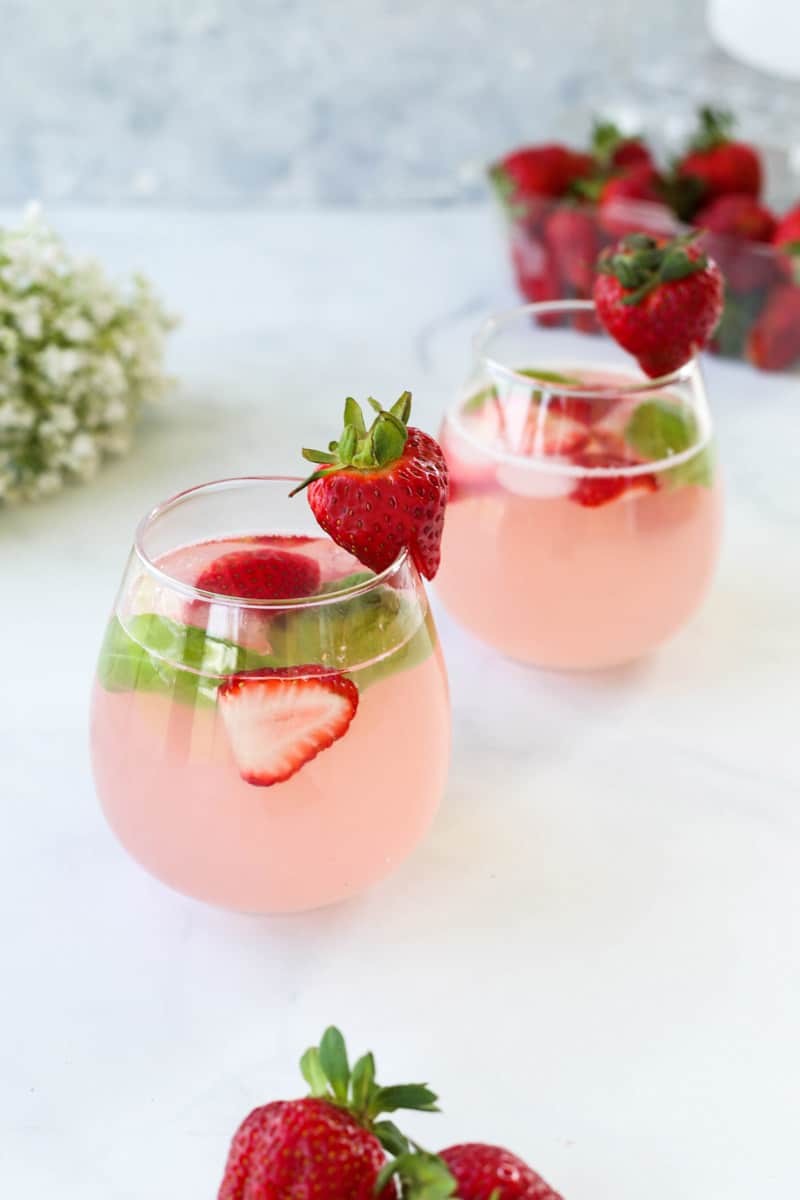


Final thoughts
It can sometimes feel overwhelming to know what to drink when pregnant. However, incorporating lightly or unsweetened beverages like juices, herbal teas and alcohol-free cocktails can help you manage the discomforts of pregnancy a little bit better.
Remember to grab your copy of my free guide “Plant Forward Meal Prep Made Easy” and learn more about my services.